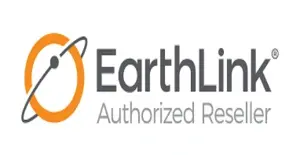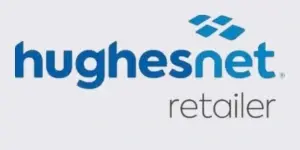Top Internet Providers in Hattiesburg, Mississippi
Xfinity from Comcast
Earthlink
Cable One
AT&T
HughesNet
The Ultimate Guide to Internet Services Providers in Hattiesburg
Living in Hattiesburg, Mississippi, places you in the heart of the "Hub City," a vibrant community known for its culture, universities, and growing economy. In today's digitally-driven world, a fast, stable, and reliable internet connection is no longer a luxury; it is an absolute necessity. Whether you are a student at the University of Southern Mississippi or William Carey University, a professional working remotely, a family streaming the latest shows, or a business owner managing operations, your internet provider is your gateway to opportunity, education, and entertainment.
The landscape of Internet Service Providers (ISPs) in Hattiesburg is competitive, offering a mix of national giants and regional specialists. This plethora of choices, while beneficial, can make selecting the right provider a daunting task. How do you cut through the marketing jargon and find the genuine best value for your specific needs? This comprehensive guide will provide an in-depth analysis of the types of internet services available, the key factors you must consider, and a detailed breakdown of the major providers serving the Hattiesburg area. Our goal is to arm you with the knowledge needed to make a confident and informed decision.
Understanding the Technological Landscape: Types of Internet Connections
Before comparing providers, it's crucial to understand the underlying technologies they use. The type of connection available to your specific address is often the primary limiting factor and the largest determinant of your internet performance.
1. Cable Internet: The Widespread Workhorse
Cable internet is one of the most prevalent and accessible forms of broadband in Hattiesburg. It operates by transmitting data through the same coaxial cable lines that deliver cable television. A key characteristic of cable internet is its shared bandwidth model. The connection from the provider's central hub to your neighborhood is a single, large pipe that is shared among all subscribers in the immediate area. This means that during peak usage hours (typically evenings from 7-11 PM), you may experience slower speeds as more of your neighbors go online to stream video, game, and browse.
* **Pros:** Widely available, offers consistently high speeds (often 100 Mbps to 1 Gbps), generally more reliable than DSL or satellite. * **Cons:** Speeds can be affected by neighborhood congestion (peak-hour slowdowns), upload speeds are typically significantly slower than download speeds. * **Best For:** Most households, especially those with multiple users who stream HD video, play online games, and work from home.
2. Fiber-Optic Internet: The Gold Standard
Fiber-optic internet represents the cutting edge of residential broadband technology. Instead of using copper cables, it transmits data as pulses of light through incredibly thin strands of glass or plastic. This technology offers three distinct advantages: symmetrical speeds, lower latency, and superior reliability. "Symmetrical speeds" means your upload speeds are just as fast as your download speeds, which is critical for video conferencing, uploading large files, and live streaming. "Latency" (often called ping) is the delay before a transfer of data begins. Fiber's low latency provides a more instantaneous connection, vital for competitive online gaming and seamless video calls.
* **Pros:** Blazing-fast symmetrical speeds (often 500 Mbps to 5 Gbps), incredibly low latency, not susceptible to electromagnetic interference, more reliable during inclement weather. * **Cons:** Availability is still expanding and is often limited to specific neighborhoods and newer developments within Hattiesburg. * **Best For:** Power users, large families, telecommuters, competitive gamers, and anyone who regularly deals with large data uploads and downloads.
3. DSL Internet: The Wired Legacy
Digital Subscriber Line (DSL) internet utilizes the existing copper telephone lines that are already installed in most homes. Unlike the old dial-up internet, DSL allows you to use the phone and the internet simultaneously. Its major limitation is that signal quality and speed degrade significantly over distance. The farther your home is from the provider's central hub or DSLAM (Digital Subscriber Line Access Multiplexer), the slower your connection will be.
* **Pros:** Widely available, often more affordable than cable or fiber, dedicated line (not shared with neighbors like cable). * **Cons:** Significantly slower maximum speeds (typically 10-100 Mbps), speed and reliability decrease with distance from the provider's hub. * **Best For:** Individuals or couples with light to moderate internet usage—web browsing, email, and standard-definition streaming—who are looking for a budget-friendly option and are located close to the provider's infrastructure.
4. Satellite Internet: The Rural Lifeline
For residents in the more rural outskirts of Hattiesburg where wired infrastructure is unavailable, satellite internet is a vital option. It beams a signal from your provider to a satellite in geostationary orbit roughly 22,000 miles above the earth, which then relays it back to a dish installed on your property. Modern satellite services from companies like Viasat and HughesNet have improved, but the technology still has inherent limitations due to the immense distance the signal must travel.
* **Pros:** Available virtually anywhere with a clear view of the southern sky. * **Cons:** High latency (600ms+), making real-time activities like gaming and video calls difficult; often has strict data caps; speeds can be affected by severe weather conditions like heavy rain or storms. * **Best For:** Rural households with no access to cable, DSL, or fiber. It is a last-resort option for basic browsing and email.
5. Fixed Wireless: The Emerging Alternative
An often-overlooked option is Fixed Wireless Access (FWA). This involves an ISP installing a small antenna on your home, which then receives a radio signal from a nearby transmission tower. This technology has been revolutionized by the deployment of 5G networks. While not as widely available as traditional options, it can be a fantastic solution in certain areas, offering a strong blend of speed and reliability without the need for extensive physical cabling to your home.
* **Pros:** Quick installation, can offer competitive speeds, not dependent on phone or cable lines. * **Cons:** Requires a clear line of sight to the provider's tower; performance can be impacted by obstructions like trees or buildings and, to a lesser extent, weather. * **Best For:** Homes in semi-rural or suburban areas with good tower proximity but limited wired options.
The Critical Factors: What to Scrutinize Before You Sign
Choosing an ISP is about more than just the advertised monthly price. To avoid frustration and unexpected bills, you must dig deeper into the following factors:
1. Speed: Matching Mbps to Your Lifestyle
Internet speed is measured in Megabits per second (Mbps). Advertised speeds are usually "up to" a certain number, and real-world performance can be lower. Consider your household's habits:
- Basic Use (25-50 Mbps): Suitable for 1-2 users for web browsing, email, and standard-definition video streaming.
- Moderate Use (100-200 Mbps): Ideal for 3-4 users. Supports multiple devices streaming HD video, online gaming, and working from home simultaneously.
- Heavy Use (300 Mbps - 1 Gbps+): Necessary for large families or power users. Enables seamless 4K/8K streaming on multiple screens, competitive gaming with no lag, and rapid uploading/downloading of very large files.
2. Data Caps: The Hidden Limitation
A data cap is a monthly limit on the amount of data you can download and upload. Exceeding this cap can result in throttled (slowed) speeds for the remainder of your billing cycle or expensive overage charges. With the average household's data consumption skyrocketing due to high-definition streaming and large game downloads, unlimited data is highly recommended. Always check the fine print to see if a plan has a cap.
3. Price, Contracts, and Fees: The True Cost
The advertised promo price is often a teaser rate that expires after 12 or 24 months. After the promotional period, the monthly cost can jump significantly. Be sure to ask:
- What is the regular price after the promo period?
- Is there a contract? What are the early termination fees (ETFs)?
- What are the one-time installation and activation fees?
- Is the equipment (modem/router) included, or is it a separate monthly rental fee?
4. Reliability and Customer Service: Your Lifeline
A fast internet connection is useless if it's constantly dropping. Research the provider's reputation for reliability in your specific area. Neighbors and local community forums on Facebook or Nextdoor can be excellent resources. Furthermore, when something goes wrong, competent customer service is invaluable. Look at reviews that specifically mention the support experience—wait times, technician punctuality, and problem-resolution efficiency.
A Deep Dive into Hattiesburg's Major Internet Providers
Now, let's apply this knowledge to the specific providers serving the Hattiesburg area.
1. Spectrum (Charter Communications)
* **Technology:** Cable * **Availability:** Widespread throughout most of Hattiesburg and its suburbs. * **Plans & Pricing (Promotional):** Spectrum typically offers a simplified lineup. Their standard plan is often around **200 Mbps** for a promotional price (e.g., $49.99/mo for 12 months). They also widely offer a **gigabit plan** (up to 1000 Mbps) for a higher promotional rate. Prices increase after the promo period. * **Data Policy:** A significant advantage—**no data caps** on any of their plans. * **Equipment:** Modem rental is typically included; WiFi router rental is an additional monthly fee (though you can often decline this and use your own compatible router). * **Contract:** No annual contracts. * **The Verdict:** Spectrum is the default choice for many in Hattiesburg due to its widespread availability and competitive speeds. The lack of data caps is a major benefit. However, customers sometimes report customer service frustrations and potential peak-hour slowdowns in densely populated neighborhoods.
2. AT&T
* **Technology:** DSL and Fiber (Internet Air in some areas) * **Availability:** This is the critical differentiator for AT&T. Their high-speed **fiber service (AT&T Fiber)** is available in select neighborhoods across Hattiesburg (e.g., parts of Turtle Creek, The Avenues, and newer developments). Their older **DSL service** is more widely available but at much slower speeds. * **Plans & Pricing:** * **Fiber:** Plans range from **300 Mbps** to ****5 GIG** (5000 Mbps)**. Promotional pricing is competitive with Spectrum (e.g., 300 Mbps for $55/mo, 500 Mbps for $65/mo). A huge advantage is symmetrical upload speeds. * **DSL:** Offers slower plans (often up to 100 Mbps) at lower price points, but these are not competitive with cable or fiber for speed. * **Data Policy:** Most AT&T Fiber plans include **unlimited data**. Their DSL and lower-tier plans may have a 1 TB data cap. * **Equipment:** Requires use of their proprietary modem/router gateway, which is included with the plan but may have an associated monthly fee. * **Contract:** Some plans may require a 12-month contract. * **The Verdict:** If **AT&T Fiber is available at your address**, it is arguably the best residential internet product in Hattiesburg, outperforming cable with its symmetrical speeds and low latency. Always verify the specific technology available at your door before ordering.
3. C Spire
* **Technology:** Fiber * **Availability:** A Mississippi-based company aggressively expanding its fiber network. Availability in Hattiesburg is growing but is still neighborhood-specific. It's essential to check their website for your address. * **Plans & Pricing:** C Spire offers straightforward fiber plans with symmetrical speeds. Common tiers include **300 Mbps, 600 Mbps, and 1 Gbps**. Pricing is highly competitive with AT&T Fiber and often includes perks like a year of Disney+ or other streaming services with certain plans. * **Data Policy:** **All plans include unlimited data.** * **Equipment:** Includes a premium Wi-Fi 6 router with their service, often at no extra equipment rental fee, which is a significant value. * **Contract:** Typically, no contracts. * **The Verdict:** C Spire is a formidable competitor where available. As a local provider, they often receive praise for their customer service. If you have the option between C Spire Fiber and another provider, they are absolutely worth considering.
4. MBI (Mississippi Bandwidth Initiative)
* **Technology:** Fiber * **Availability:** Focused on serving rural and underserved communities in Mississippi. They may be available in the more outlying areas around Hattiesburg where traditional providers are not. * **The Verdict:** MBI is a critical player in closing the digital divide in Mississippi. If you live in a rural part of the Hattiesburg area and have been stuck with satellite, definitely check MBI's availability. They offer modern fiber technology to areas that are often ignored by larger corporations.
5. Satellite Providers (Viasat & HughesNet)
* **The Verdict:** For most residents within the Hattiesburg city limits, satellite internet is not recommended due to its high latency, data caps, and lower value compared to wired options. It remains a vital service only for those in extremely rural locations with no other alternatives.
Making Your Final Decision: A Step-by-Step Action Plan
- Check Availability: Use online tools on the Spectrum, AT&T, C Spire, and MBI websites to input your exact address. This is the most important step.
- List Your Options: Note the maximum speeds and technologies (cable vs. fiber) available to you.
- Assess Your Needs: Based on your household's size and habits, determine the speed tier you need.
- Compare True Cost: Calculate the total monthly cost for the first year and the second year, including all equipment rental fees.
- Read the Fine Print: Look for data caps and contract terms.
- Research Local Reviews: Search for "[Provider Name] Hattiesburg reviews" to gauge customer satisfaction and reliability in your specific area.
Conclusion: Empowering Your Digital Life in the Hub City
Choosing the right internet provider in Hattiesburg is a significant decision that impacts your daily life. There is no single "best" provider for everyone; the best choice is the one that delivers the right combination of speed, reliability, and value to your specific address. For most urban and suburban residents, the competition between Spectrum's widespread cable network and the expanding fiber footprints of AT&T and C Spire creates a healthy market with excellent options. For those in rural areas, providers like MBI are revolutionizing connectivity.
By understanding the technologies, carefully evaluating your needs, and scrutinizing the real costs and terms, you can move beyond the marketing hype. Armed with the detailed information in this guide, you are now equipped to navigate the options and select the internet service that will reliably connect your home or business in Hattiesburg to the vast opportunities of the digital world.
Compare Internet Providers in Hattiesburg MS
Moving to the Hattiesburg area?
Let us help you transfer your current Internet service or pick a new plan.
Find More Internet Providers by Locations Near You
- Internet Providers in New York
- Internet Providers in Los Angeles
- Internet Providers in Chicago
- Internet Providers in Houston
- Internet Providers in Philadelphia
- Internet Providers in San Antonio
- Internet Providers in San Diego
- Internet Providers in Dallas
- Internet Providers in Phoenix
- Internet Providers in Minneapolis
- Internet Providers in Austin
- Internet Providers in San Jose
- Internet Providers in Fort Worth
- Internet Providers in Jacksonville
- Internet Providers in Columbus
- Internet Providers in Charlotte
- Internet Providers in Indianapolis
- Internet Providers in San Francisco
- Internet Providers in Seattle
- Internet Providers in Denver
- Internet Providers in Detroit
- Internet Providers in Boston
- Internet Providers in El Paso
- Internet Providers in Nashville
- Internet Providers in Cleveland
- Internet Providers in Portland
- Internet Providers in Las Vegas
- Internet Providers in Louisville
- Internet Providers in Milwaukee
- Internet Providers in Baltimore
- Internet Providers in Albuquerque
- Internet Providers in Fresno
- Internet Providers in Sacramento
- Internet Providers in Atlanta
- Internet Providers in Saint Paul
- Internet Providers in Kansas City
- Internet Providers in Tucson
- Internet Providers in Raleigh
- Internet Providers in Omaha
- Internet Providers in Miami
- Internet Providers in Long Beach
- Internet Providers in Oakland
- Internet Providers in Tampa
- Internet Providers in Wichita
Top Internet Providers in Hattiesburg in Your Area
FAQ
1. Who’s the overall best internet provider in Hattiesburg?
EarthLink Fiber frequently tops the lists for best overall service, offering speeds up to 5 Gbps and starting at around $39.95/month
2. Which provider offers the fastest internet?
Both EarthLink Fiber and AT&T Fiber deliver blazing-fast speeds up to 5 Gbps in the area
3. Which provider has the best availability across Hattiesburg?
Xfinity (cable) reaches around 86–90% coverage InMyArea.com ISP Providers In My Area +1 . For wireless, HughesNet, Viasat, and Starlink offer 100% satellite coverage for remote areas Bandwidth Place ISP Reports .
4. Who offers the most budget-friendly options?
Xfinity has entry-level plans starting around $19.99–$45/month Cable Movers allconnect.com . EarthLink offers fiber for $39.95/month EarthLink , and HughesNet offers satellite plans starting near $49.99/month HughesNet allconnect.com .
5. Which provider is best for gaming, streaming, or reliability?
EarthLink Fiber and AT&T Fiber lead the pack for reliability, low latency, and high speeds—ideal for gaming and streaming broadbandsearch.net BroadbandNow . Locally, many residents also favor PearlComm Fiber for excellent customer satisfaction, though availability is limited ISP Reports .
Find Best Internet Provider in Your area?
Enter your zip so we can find the best providers in your area:




